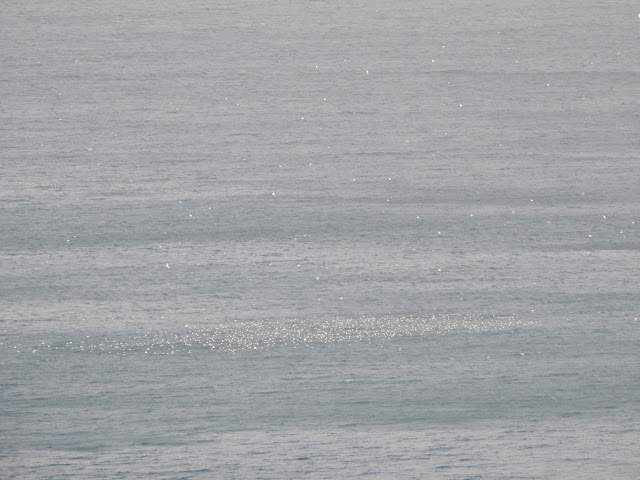31 January
30mph winds from the northwest, overcast but dry
Three Woodpigeon continue to be seen around
Millcombe with a Water Rail, Chiffchaff and two Goldcrests
in Smelly Gully. After almost two weeks of absence a Merlin was seen hunting Skylark over South West Field. Further up
the island 10 Teal were on
Pondsbury. Off the East Coast were 2000 Kittiwakes
with two Mediterranean Gulls and 15 Common Gulls. The Red-throated Diver was still present
off Rat Island.
1 February
Bright with moderate winds continuing from the west
The Lapwing continues to be seen in Barton Field and an amazing 14 Snipe were seen across the island, the majority in a wet flush in South West Field. Kittiwake numbers are still high with an estimated 3500 off the East Coast. Only a single Common Gull was picked out amongst them though. A Great Northern Diver and Red-throated Diver were also off the East Coast.
Two Chiffchaff continue to be seen in Smelly Gully at the bottom of Millcombe Valley, one ringed and one unringed.
 |
| Lapwing, Barton Field © Stuart Cossey |
2 February
Mostly cloudy with moderate winds from the north
It was a busy morning in Millcombe with Song Thrush, Robin, Dunnock, Wren and Chaffinch all singing. Two Chiffchaffs and five Goldcrest were also recorded. The first Snow Bunting of the year was seen up past Threequarter Wall in the late morning.
 |
| Song Thrush, Millcombe Valley © Stuart Cossey |
There was an obvious passage of gulls off the East Side and North End today with seven Black-headed Gulls, five Mediterranean Gulls, 44 Common Gulls and a Little Gull seen with an estimated 3350 Kittiwakes.
3 February
Dry and mild with continued 20mph winds from the northwest
A slight change was noted off the East Coast with only 2000 Kittiwakes, one Black-headed Gull, one Mediterranean Gull and six Common Gulls. The Merlin was seen off Castle Hill flying high south to chase migrating Skylark back towards the island. The Merlin was unsuccessful this time but was seen amongst the Starlings in Tillage Field later in the day. There was no sign of the Lapwing in Barton Field despite multiple visits.
4 February
Bright with strong winds continuing from the west
The Kittiwake flock remains off the East Coast with an estimated 3500 present along with three Common Gulls. Back on land, a Jack Snipe and a Snipe were in a wet flush in Southwest Field. Also of note was a Merlin and ten Skylarks.
5 February
Overcast with winds from the west gusting at 40mph
The female Bullfinch that was last seen on the 24 January was back in Millcombe Valley. It remains elusive with only a brief sighting before disappearing into dense scrub. Also in Milcombe were two Chiffchaffs, 16 Chaffinches including a small flock if 13 and a singing male.
At the edge of the Landing Bay 3000+ Kittiwakes were joined by one 1st winter Black-headed Gull, three Common Gulls and two 1st winter Little Gulls. A Great Northern Diver and 66 Shag were also recorded.
6 February
Overcast with some rain showers. Strong winds continue from the west
Really strong winds meant that there were few birds on the plateau. A total of six Water Rail were recorded, four in Millcombe and two in St Helens Copse. Also in Millcombe were 13 Chaffinch and a Chiffchaff and Goldcrest were in Smelly Gully.
The 3200 Kittiwake were still off the East Coast, though even with close views and amazing light only two Common Gulls were seen with them. The two Great Northern Divers are still in the Landing Bay.
 |
| Kittiwakes, East Coast © Stuart Cossey |
No comments:
Post a Comment